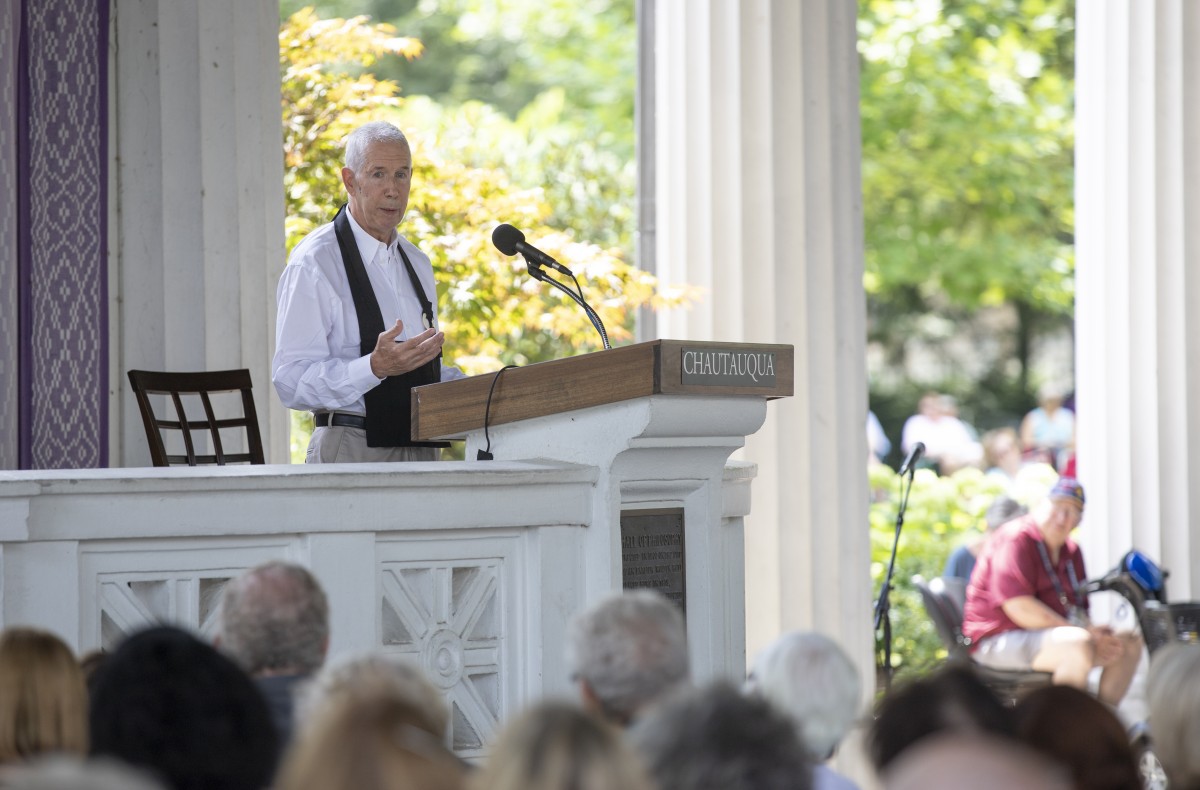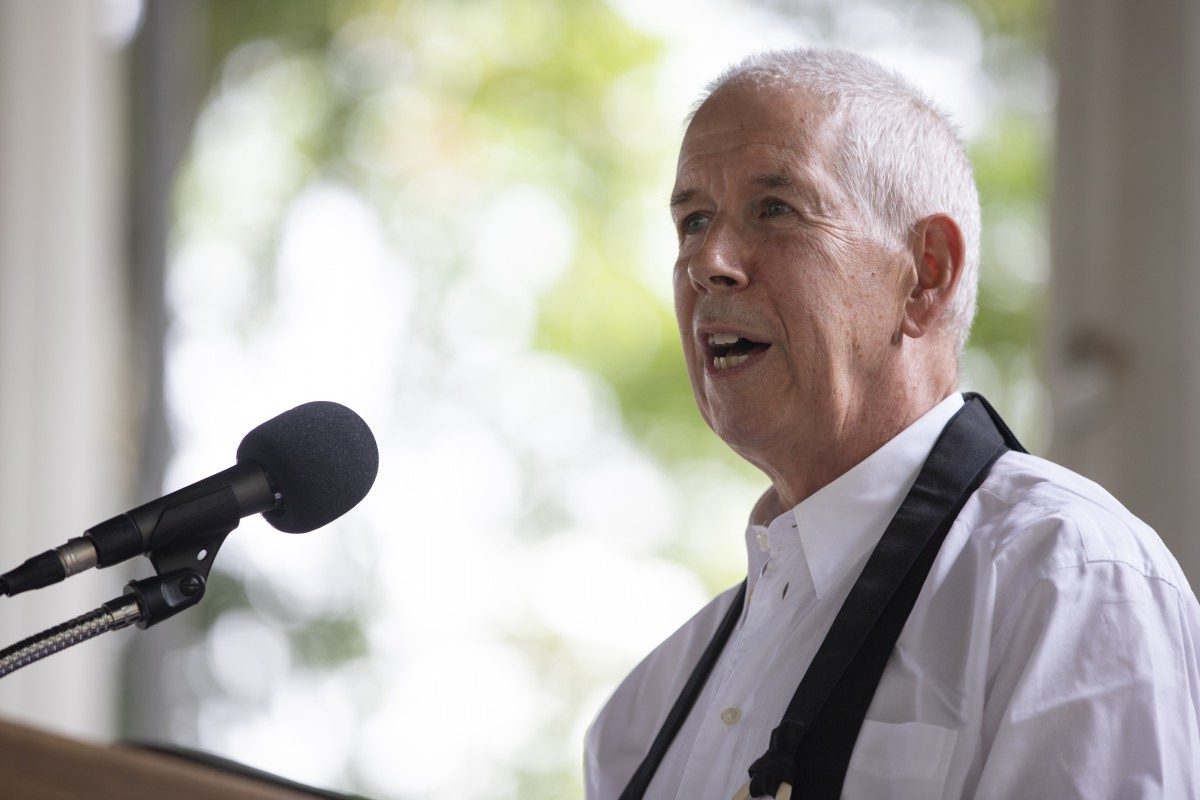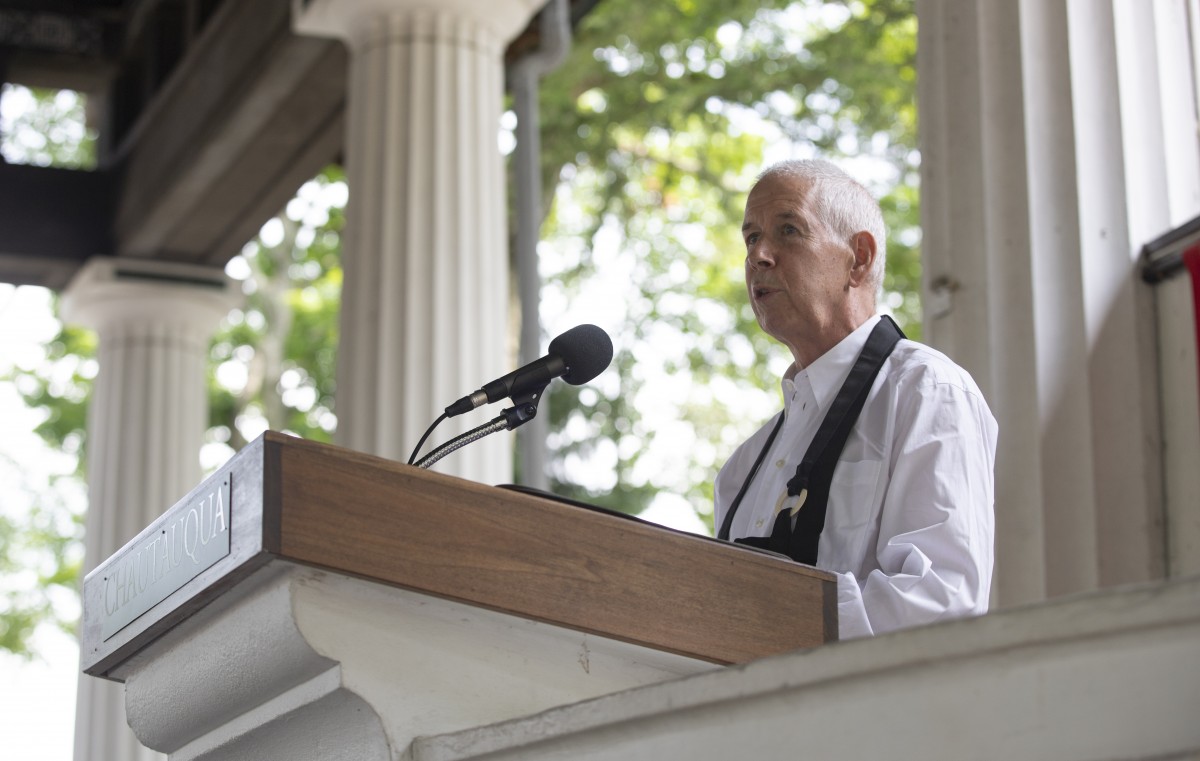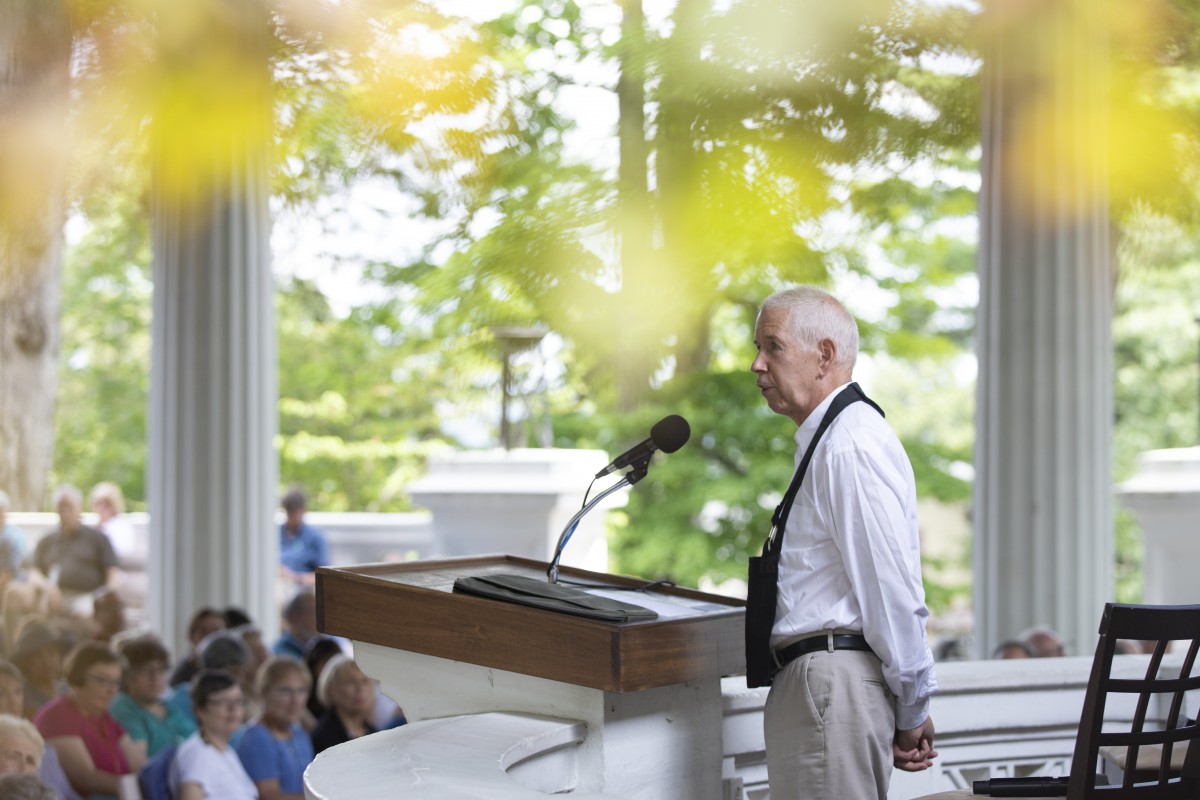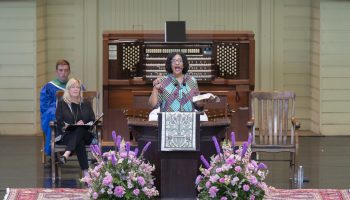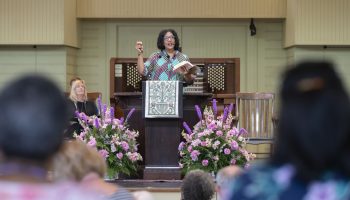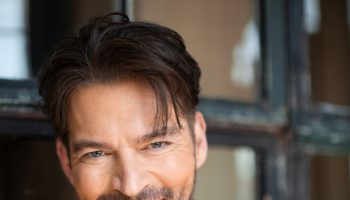In the seventh edition of the Interfaith Friday Series, the Rt. Rev. V. Gene Robinson, vice president of religion, moderated a number of questions with interfaith advocate, John Pulleyn, who represented Zen Buddhism.
Pulleyn has been practicing Zen Buddhism for 50 years and is currently head of Zen training at Rochester Zen Center. Pulleyn also became a pediatric nurse at the age of 50, with a nursing degree from SUNY Brockport, and worked for 10 years on the adolescent unit of Strong Memorial Hospital in Rochester, New York.
What follows is an abridged version of Pulleyn’s conversation. Pulleyn and Robinson’s remarks have been condensed for clarity.
From where you sit in your tradition, why should we be moving in an interfaith direction either here at Chautauqua or in the world?
The first reason is we need to take in as much of people as we can, and we need to expand. We need to go out to the things that are far from our life, and we need to understand it as much as we can. We need to not be separate. The biggest disaster in life is being separated from others and to be separated from your life, so interfaith to me is just part of that lifelong process of learning about other people. And then beyond that, other religions bring gifts and insight to one’s own religion. There is no question for me. For instance, I have been practicing Zen for quite a while, while also maintaining a drinking habit, which became a bit of a problem and I ended up going into treatment. That is when I stumbled on the Serenity Prayer. That is when I came upon the idea of just accepting myself for what I was and when I started becoming comfortable in my own skin. It was amazingly helpful for returning full force to Zen practice, and it was a moment where things really turned around for me. I no longer cared whether I was perfect or not. It didn’t matter. Wherever you are, that’s where you root from.
When you come to the metaphorical interfaith table, what gifts do you bring as a Zen Buddhist to that table?
I think the first one is tolerance and the understanding that what’s important is not what you believe, but what you do. Dogma may be great. It may sustain you in some ways, but it is not what is important. The labels we put on people are not important, and it is just natural to use them. So that is certainly one thing. And then also the practice of meditation. I think among the many religions, Buddhism (has) a long, long history of experience in meditation practices and a lot of expertise, and those techniques and those methods are available despite one being a Christian or Jew. Just so people understand the Rochester Zen Center, where I operate, many of our members are not Buddhists, they are Christians or Jews or Hindu or whatever.
What gifts do other religions bring to the table that you might benefit from?
The one that comes to mind is humility. Christians specialize in humility, I believe, and I think that is helpful in Zen. In other forms of Buddhism, it may not be as necessary, but because of the emphasis on “you need to do work, you need to be aligned with yourself,” it is easy for human beings sure of complete awakening to take credit for it, to attribute it to this ego self that doesn’t actually exist. Somebody can have a minor awakening, they can see what is right to do, but everyone falls back into old bad habits, and it is an extremely tense state to be like a Buddha. Even the Dalai Lama says, “I am just like this.” So I think humility is a big one.
Is that perception of “we are all one, there is no difference between us,” is that a momentary thing or does that state of being and recognition last for much longer than a moment?
It can be either way. For someone to really have a deep experience, you need to continue to practice; one needs to continue to do meditation. It is pretty hard to maintain that awareness without this practice of meditation, and the thing about this understanding is it’s not an understanding that is verbal. The slogan of the Zen school is “teaching beyond words and letters and pointing directly to the mind.” So everybody here has a really good thinking mind that they use to solve problems. To us, every problem is something we can solve with our thoughts, and when you start to meditate, you are really going have a hard time with this because thoughts don’t come into it. You are just trying to pay clear attention and not get caught up in thoughts. The practice of meditation really is: You try to focus on something, you drift off into thought, you notice that you drifted and you dropped the thought. It is the practice of doing that again and again, thousands of times, that makes a change in the way your mind operates. It is a process, a slow process.
Do you have any sacred texts or holy teachings that are telling you that yours is the one true religion?
I don’t think (Buddhists) do in general, but I think a lot of us feel there is one truth, but whether Buddhism has a monopoly on that truth, who knows? In that sense, the truth of intemperance, the truth of no self, I think Buddhists are strong on that but to say that … “this is what you have to believe if you are going to be saved,” no, I don’t think so.
Do you have extremist practitioners of Zen Buddhism?
Yeah, the Rohingya were driven out of their homes and killed by Buddhists, and the leaders of that horrible massacre were Buddhist monks; and is it Buddhism or is it ethnic cleansing? I don’t know. How could they be using the teachings of Buddhism? What is there to pick up, to justify? But this memory reminds us that every religion is formed by people, it is full of people and until complete awakening, until we perfect ourselves — and who knows when that will happen — these things will occur.


